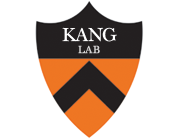Elf5 regulates mammary gland stem/progenitor cell fate by influencing notch signaling.
Type
The transcription factor E74-like factor 5 (Elf5) functions downstream of the prolactin receptor signaling pathway and plays an important role in mammary gland development. Using conditional mouse knockouts, we have previously shown that Elf5-null mammary glands exhibit a complete failure of alveologenesis during pregnancy. The Elf5-null developmental phenotype is mediated through alteration in the expression of several critical genes involved in alveologenesis, particularly those belonging to the JAK/STAT pathway. Here, we demonstrate that in addition to regulating terminal differentiation of alveolar cells, Elf5 also plays a critical role in determining cell fate and in regulating the stem/progenitor function of the mammary epithelium. Targeted deletion of Elf5 in the mammary glands leads to accumulation of cell types with dual luminal/basal properties such as coexpression of K8 and K14 and an increase in CD61(+) luminal progenitor population during pregnancy. Further interrogation suggests that the abnormal increase in K14(+) K8(+) cells may represent the CD61(+) luminal progenitors blocked in differentiation. Remarkably, Elf5 deficiency in mammary epithelium also triggers an increase of adult mammary stem activity as evidenced by the accumulation of mammary stem cell (MaSC)-enriched cell population in both pregnant and virgin mice and further confirmed by mammosphere and transplantation assays. Additional support for this phenotype comes from the enriched MaSC gene signature based on transcriptomic analysis of the Elf5-null mammary gland. Finally, our biochemical studies suggest that Elf5 loss leads to hyperactivation of the Notch signaling pathway, which might constitute in part, the underlying molecular mechanism for the altered cell lineage decisions in Elf5-null mammary epithelial cells.

